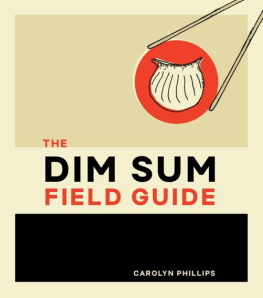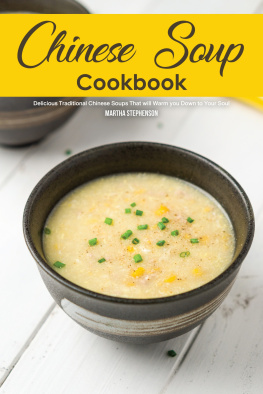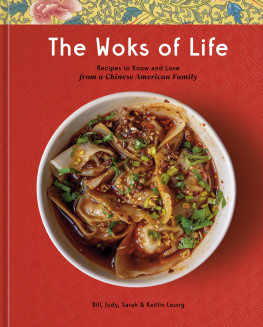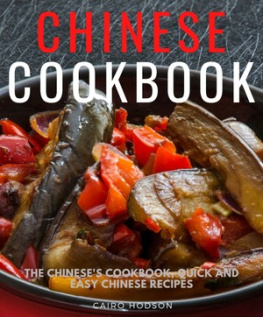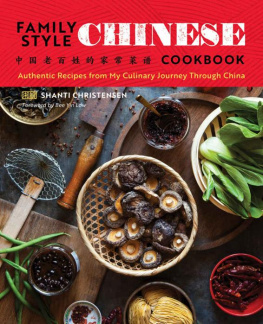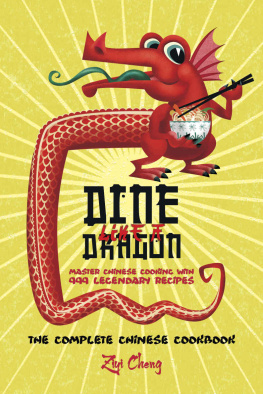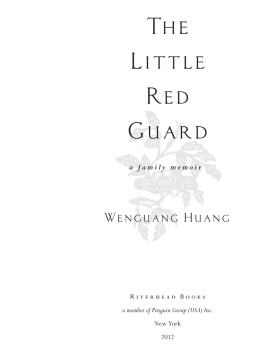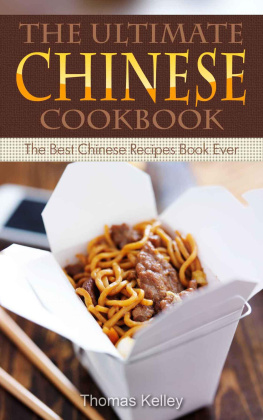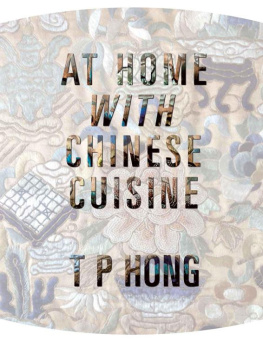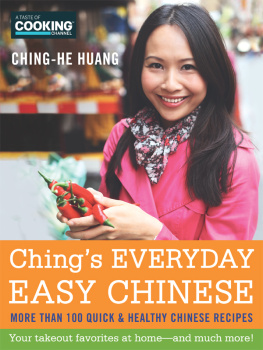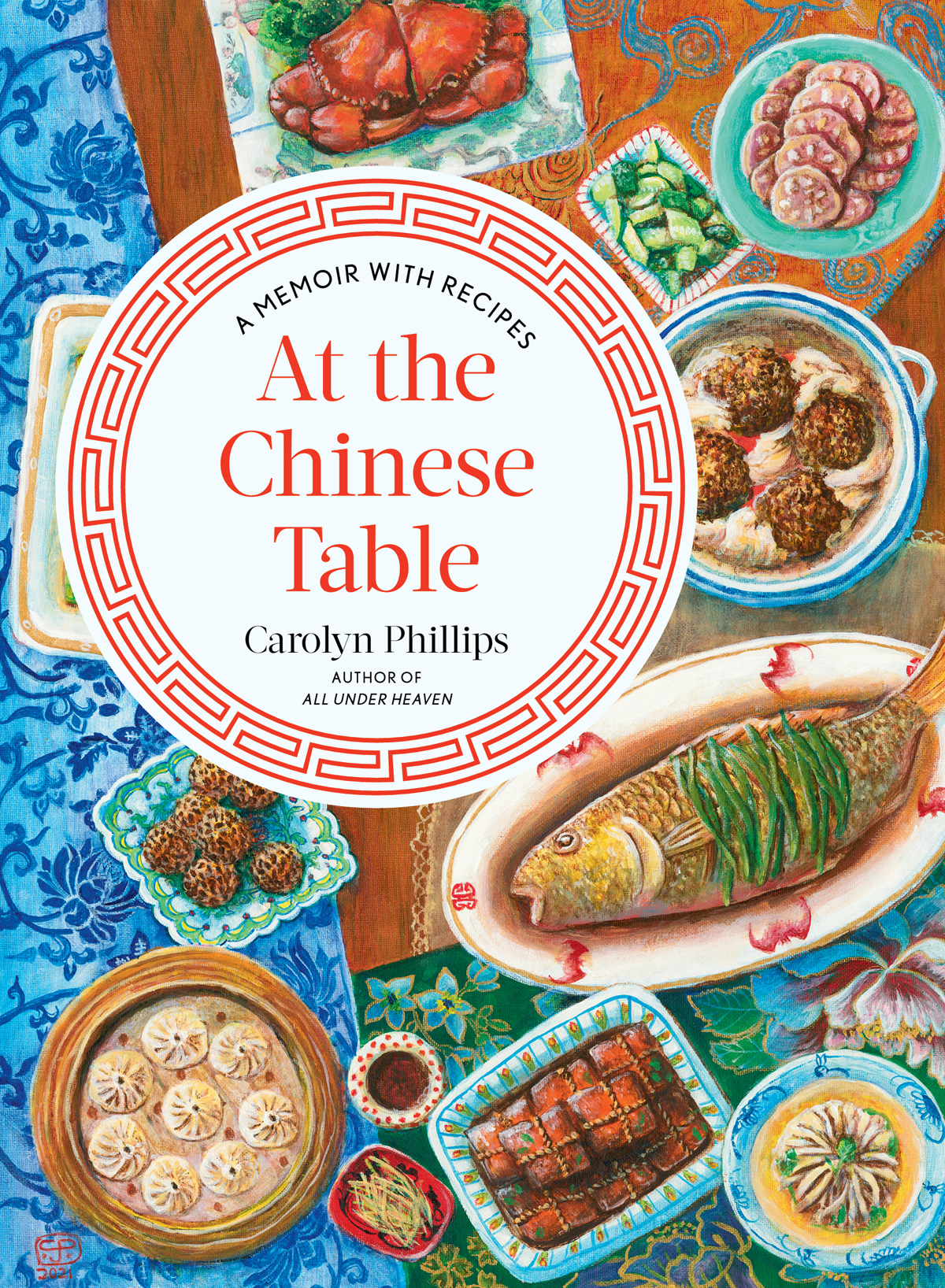Contents
Guide
Page List
At the
Chinese Table
A MEMOIR WITH RECIPES
Written and Illustrated by
Carolyn Phillips
To J. H. Huang and his maternal
grandmother, Liu Yukun,
for reasons that will soon become obvious

Contents
The recipes in this book are mainly based on food memories from my eight years in Taiwan, as well as some of the delicious meals my husband and I have enjoyed both on the Mainland and in the United States. If there is an overrepresentation of pork and garlic and sweets in here, well, you can see where my tastes lie. Please consult the Glossary and Basic Recipes beginning on for information on where to buy and how to use many of their ingredients.
A few of the ingredients called for in these recipes might prove to be difficult to find, especially if you dont live near a thriving Chinese community. You can purchase many of these staples and seasonings online, and you certainly should use every chance to stock up when you visit a good East Asian grocery store or Chinatown, but sometimes even these wont suffice. And so Ive added a couple paragraphs at the end of most of the recipes to give you some ideas on how to address problems like not being able to buy winter melons and water chestnuts. As always, check out the Glossary and Basic Recipes section to find out more about these ingredients.
I have included metric measurements in addition to the usual American cups and teaspoons and pounds. Note that with an aim toward achieving a modicum of simplicity, these usually are approximate in value (i.e., one pound in this book equals 500 grams, instead of the more accurate 454 grams), since those small increments rarely make much of a difference unless youre trying to create pastries and candy. The serving sizes for entres take into account that these will be part of a multicourse meal unless otherwise noted.
The Pinyin form of romanization is used throughout this book, except for common place-names (such as Taipei and Kaohsiung), as well as certain names of people who are either famous or have a known preferred spelling.
A few of these experiences and conversations have been compressed or combined or retold in order to help with the flow of things, but Ive done my best to provide honest recollections, as well as extrapolations based on the facts as I understand them. In any event, whatever errors you may find are mine and no one elses.
Carolyn Phillips
California, March 2020
At the
Chinese Table

I t feels at times as if my life has been one long love affair with China. But to be honest, my desire for all that is beautiful and delicious in this ancient country really started in 1976. Back home from college that year, I was at a loss as to what to do with myself. The only thing I knew for certain was that I had a vague ambition to learn more about Chinaits language, its culture, its foodthan my courses at the University of Hawaii had been able to offer.
My immediate problem was that even though the Great Proletariat Cultural Revolution was beginning to wind down after thirteen long years, the doors to Mainland China seemed as if they were going to remain firmly closed for the foreseeable future to foreigners in general and Americans in particular. And then I read about a language program in Taiwan. Without giving much thought to what I was doing and why, I signed up, and within a few months found myself traveling to the other side of the world.
I naively believed that as soon as I landed in Taiwan, I would breathe in Mandarin Chinese like oxygen, that I would become fluent through some sort of magical osmosis. Surprisingly enoughto me, at leastthat didnt happen. But in another way, I was incredibly lucky: Unbeknownst to me, Taipei had become, through a marvelous confluence of events, home to the foods of every region of China. The islands economy was also just beginning to take off as a consequence of the high-tech revolution, and chefs were responding to this sudden influx of money by establishing culinary shrines dedicated to any number of Chinas almost infinite array of unique and enchanting cuisines.
And that is why, even though I initially failed to digest much more than basic conversational Mandarin, Chinas gastronomy found a way to speak to me, to comfort me, to educate me, to welcome me, and to entice me into hanging in there just a little bit longer. I eventually fell in love with a scholar and gourmet who provided unexpected access into his world, and that is what, in the end, allowed me to call Taipei home for another six incredible years.
There is no doubt that he and Taiwan and the Chinese people shaped me. It is thanks to them that I ended up spending most of my adult life as a professional Mandarin interpreter before fashioning my love for the foods of China into a late-life career as a food writer and artist. Perhaps more important, though, I became part of a Chinese family whose history turned out to be intricately intertwined with that of their native land, a labyrinth of extraordinary lives.
This is my story. And theirs.

TAIPEI1976 TO 1978
T he city that sparkles below me, the one stirring itself awake window by window, hints that it is much more foreign and definitely much more exciting than I had been led to believe. In a few years, I will come to love this place more than I had ever thought possible. But right now, on this first morning in my host familys home, I content myself with simply inhaling the sultry scents that envelop the mysterious Asian capital sprawling below me, its edges fading into the night fog and darkness.
Outside my compact little bath, the subtropical air whirls with Taipeis indefinable aroma: a heady mixture of diesel fumes, last nights rain, something or other frying, sandalwood incense, sesame oil, and the occasional gasp of cigarette smoke. Before this trip, the only foreign country I had ever managed to visit was Canada, but here I am, committed to a year on the other side of the world with only four semesters of college Chinese under my belt. As I stare out the window, I wonder whether I am being incredibly brave or abysmally foolish.
The day is September 3, 1976. I am twenty-one. Everyone I know within a three-thousand-mile radius is an acquaintance of only a few days, like me yet one more young American hoping against hope to learn Chinese. My stomach has been grumbling insistently ever since I woke up, so as soon as the sun begins to peek over the horizon, I throw on some jeans and a T-shirt, scrawl a note in Chinese that tries to suggest something on the order of Ill be back in a couple hours, grab my house keys and a small wad of the local currency, and cram a dictionary into my back pocket. I arrange my house slippers next to the front door, put on a pair of old tennis shoes, and scurry down the apartment stairwell at high speed. I turn left as I reach the alleyway and head for the noisy thoroughfare I saw through the window, anxious to get my new life off to a tasty start.


